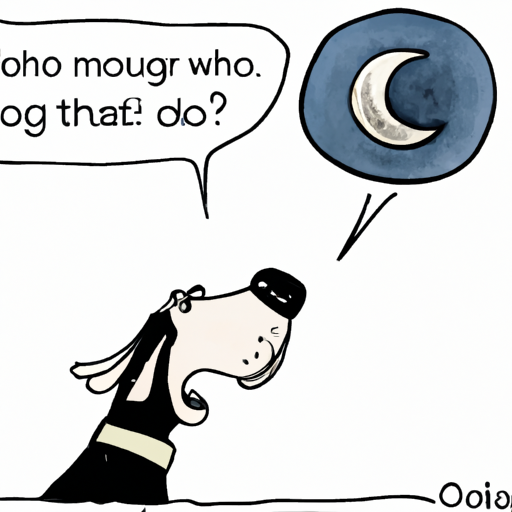Understanding the Canine Language
Dear caregivers, imagine you’re sitting in your cozy living room, a book in one hand and a cup of cocoa in the other. Suddenly, you decide to let out a playful howl, and to your surprise, your furry friend joins in. You may find yourself asking, “Why did my dog just howl back at me?”
Dogs, much like their wolf ancestors, use howling as a form of communication. It’s a primal language they instinctively understand and respond to. Here are some reasons why your dog might be howling back at you:
- Pack Mentality: Dogs are pack animals and often howl to bond with their pack, in this case, you.
- Attention Seeking: Dogs may howl back simply because they want your attention or a treat.
- Sound Response: Some sounds, like sirens, musical instruments, or indeed your own howl, may trigger a howling response in dogs.
The Science of Dog Howling
Dogs don’t just howl for the fun of it. There is actually some interesting science behind it. Research shows that dogs howl to communicate their presence to other dogs and to express their emotional state.
Remember, the world of dogs is a world of scents and sounds. While humans primarily communicate through sight, dogs rely on their keen sense of hearing. The table below shows the comparison between the human and dog hearing range:
| Species | Hearing Range |
|---|---|
| Human | 20Hz – 20kHz |
| Dog | 40Hz – 60kHz |
How to Respond to Your Dog’s Howling
Responding to your dog’s howling can be a bit tricky. You don’t want to reinforce unwanted behavior, but at the same time, you don’t want to ignore your dog if they’re trying to communicate something important. So, what’s a caring pet parent to do?
- Positive Reinforcement: Reward your dog for being quiet, especially after they’ve stopped howling.
- Distract and Divert: If your dog starts howling at certain triggers, try to distract them with a fun game or a training session.
- Consult a Professional: If the howling becomes excessive or you notice signs of distress, it might be time to consult a professional dog trainer or a vet.
The Art of Canine Communication
In essence, dogs howl to communicate. They howl because they hear you howling and want to join in the fun, or because they’re seeking attention, or simply responding to certain sounds. It’s a language as old as time, a song that echoes from the distant past, a melody of belonging.
So, the next time you and your dog engage in a duet of howls, remember this: you’re not just making noise. You’re speaking a language that transcends species. You’re part of the pack.
Frequently Asked Questions
Q: Why does my dog howl when I howl?
A: Dogs howl back at you to communicate, bond, seek attention, or respond to certain sounds.
Q: Is it bad to howl back at my dog?
A: Not necessarily. But be cautious not to reinforce unwanted behavior.
Q: How can I stop my dog from howling excessively?
A: Reward quiet behavior, distract your dog from triggers, or consult a professional.
Q: Does all dog howling mean distress?
A: No, howling is not always a sign of distress. It can also be a form of communication or bonding.



